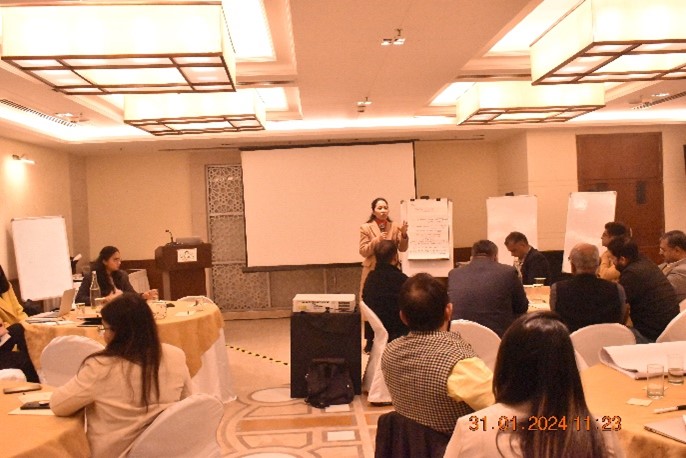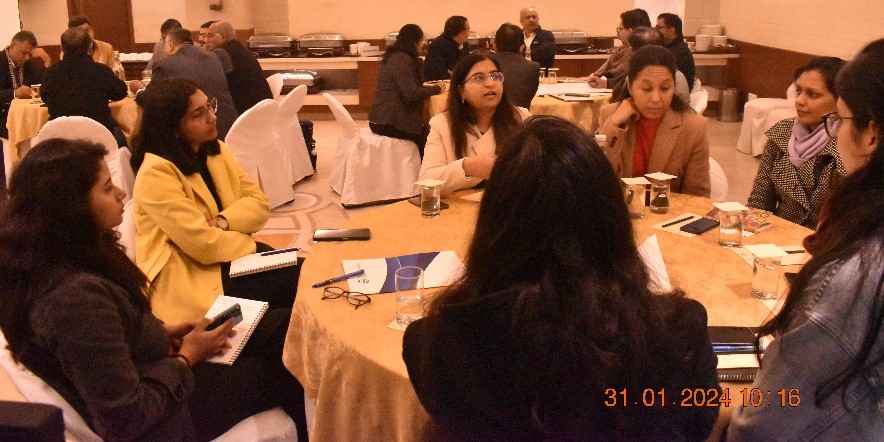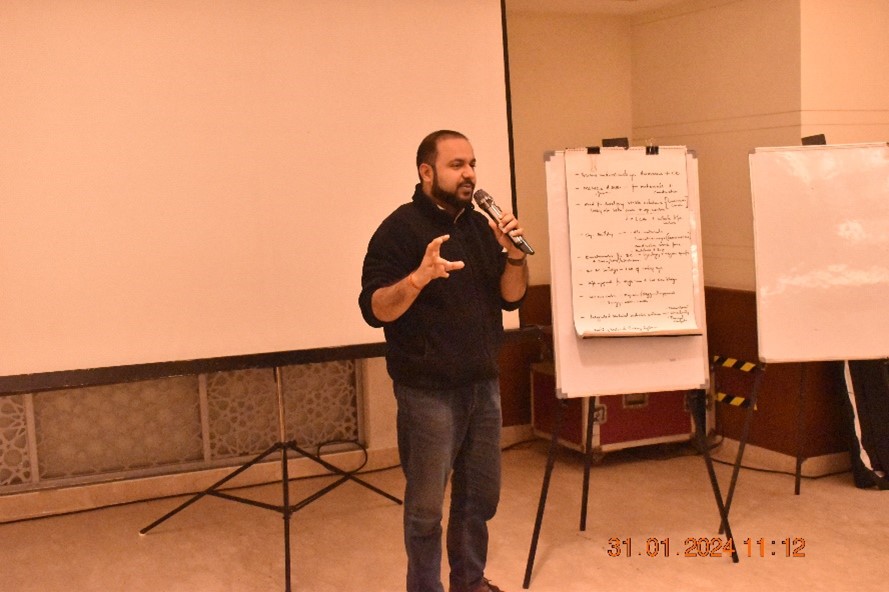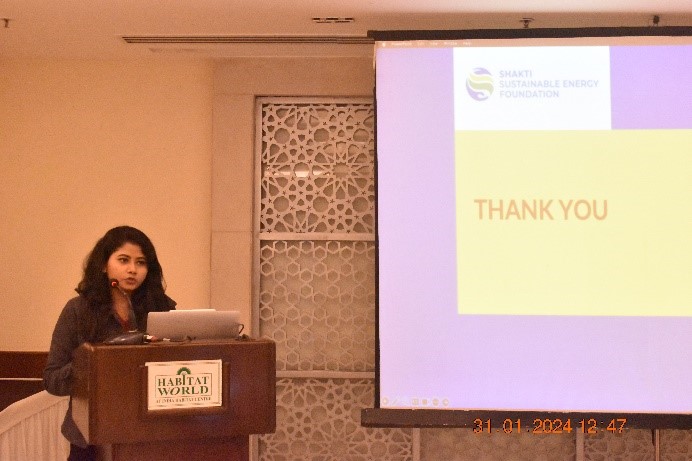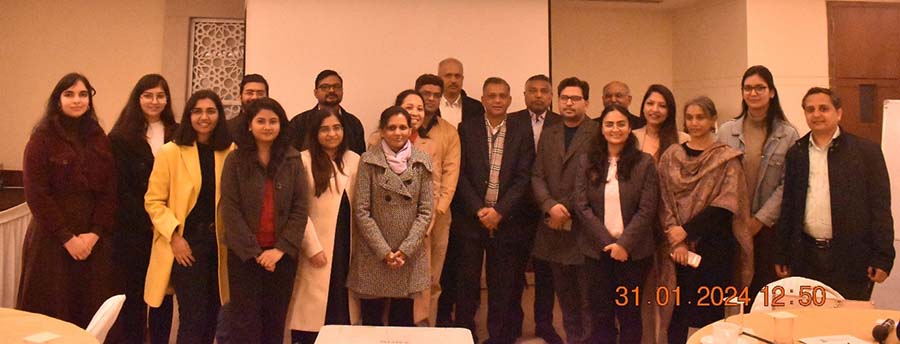
Industry Building and Cooling Programme team of Shakti organised it’s second Stakeholder Planning Workshop 2024, convened on January 31, 2024, aimed at ‘Decarbonising the Built Environment with a focus on the building sector.’ The workshop gathered participation from 16 organisations and 18 participants from CSO organisations, consultancies, think tanks, academia, and subject matter experts to deliberate on key challenges and opportunities related to addressing embodied carbon through whole lifecycle emissions, low-carbon building materials, and technologies.
The discussion centred around two pivotal themes:
- Policy Landscape for NZ buildings: Identifying challenges and opportunities to adopt low-carbon building materials and technologies.
- Potential Levers to decarbonise the built Environment: Identifying key missing pieces that need to be initiated to ensure effective implementation, including Passive Design Strategies, Enhancing EE (Code Compliance), Life Cycle Assessment, and RE-Integration.
Recommendations included the development of benchmarking for Embodied Carbon, fostering viable solutions and business models, capacity building of stakeholders, and the establishment of integrated material selection criteria. Additionally, the necessity for technology-agnostic codes and transparent reporting mechanisms was emphasised, alongside ensuring the availability and establishment of testing guidelines for low-carbon technology and materials. Customisable solutions and a deeper understanding of ventilation strategies were proposed, alongside initiatives for grid integration of renewable energy for NZ buildings and the comprehension of building energy codes for effective implementation.
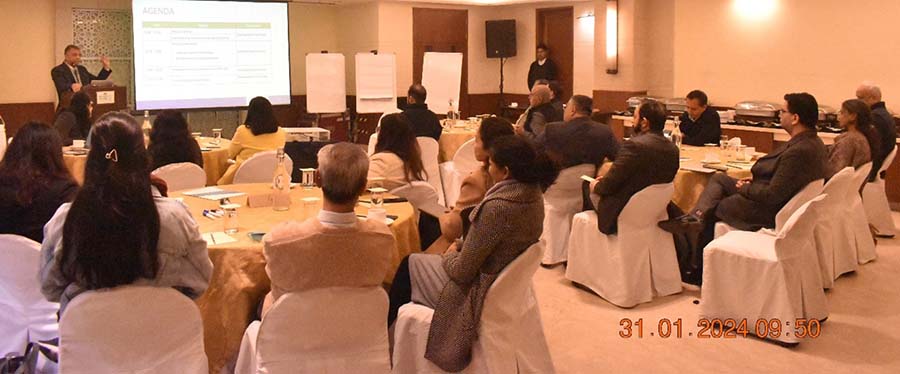
Key insights included a deeper understanding of Life Cycle Assessment across building types, emphasising stakeholder collaboration, and increasing the adoption of low-carbon technology and materials within the built environment. The need for a staggered approach to achieving Net Zero Carbon Buildings encompassing energy, water, and waste was highlighted. Looking forward to 2024, milestones such as developing an embodied carbon framework, initiating climate-specific projects leveraging passive technologies, and establishing energy code implementation guidelines were identified to drive decarbonisation efforts. In conclusion, the workshop represented a significant stride towards a sustainable, low carbon-built environment in the Net Zero setting, paving the way for transformative action.
